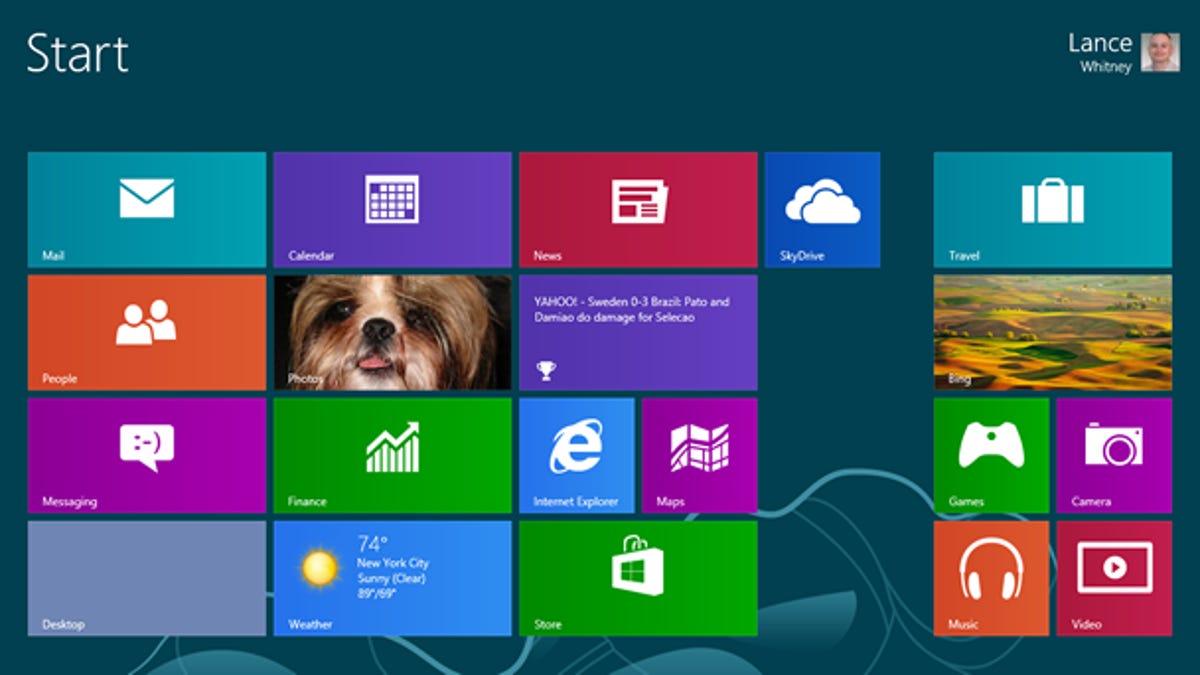Windows 8 launches... and PC sales drop 21 percent. Hmm
Following the debut of Windows 8, U.S. PC sales dropped by more than a fifth versus sales from a year ago. This is not a promising sign.

Windows 8 isn't exactly lighting a fire under PC sales, according to NPD.
U.S. sales of Windows devices during the initial four-week launch of Windows 8 dropped 21 percent compared with the same period a year ago, the research firm said today.
Notebook sales, which have been on the decline all year, sunk by 24 percent. And desktop sales, which staged a bit of a rebound this year, declined by 9 percent.
"After just four weeks on the market, it's still early to place blame on Windows 8 for the ongoing weakness in the PC market," Stephen Baker, vice president of industry analysis at NPD, said in a statement. "We still have the whole holiday selling season ahead of us, but clearly Windows 8 did not prove to be the impetus for a sales turnaround some had hoped for."
In the four weeks since its official debut last month, Windows 8 accounted for 58 percent of all Windows device sales, according to NPD. That number proved quite a bit lower than the 83 percent that Windows 7 grabbed during its initial four weeks. Windows 8 tablet sales have been "almost non-existent," Baker added, capturing less than 1 percent of all Windows device sales over that time.
Weak sales of Windows 7 devices during the back-to-school shopping season also left retailers with a lot of unsold inventory, which in turn impacted initial sales for Wndows 8 devices.
Still, the news isn't all gloom and doom: the average selling prices of Windows devices are higher than they were a year ago, NPD said.
The average price of a Windows 8 notebook climbed by around $80, compared with a Windows 7 notebook a year ago. That rise was triggered by strong sales of Windows 8 touch-screen devices and a jump in the price for mainstream notebooks.
The average selling price of Windows 8 desktops rose 10 percent, thanks to demand for all-in-one PCs and an increase in the price of mainstream desktops.
"The strong performance of Windows 8 notebooks with touchscreens, where Windows 8 truly shines, offers some reason for optimism," Baker said. "These products accounted for 6 percent of Windows 8 notebook sales at an average price of $867 helping to re-establish a premium segment to the Windows consumer notebook market."
For the purposes of its report, NPD looked at Windows 8 device sales from October 21 to November 17 of this year. Windows 8 and Windows 8 devices didn't officially go on sale until October 26. However, NPD doesn't provide sales data on a daily basis, so it had to include the full week.
NPD analyst Stephen Baker acknowledged to CNET that obviously Windows 8 device sales for the first few days of that initial week would not have been high. But he felt that the comparison with last year's data still applied.
The information also excluded sales of Microsoft's Surface tablet, which Baker said is simply because Microsoft doesn't supply those numbers.
NPD's report follows other downbeat news about initial Windows 8 sales.
Citing a source from Microsoft itself, Supersite For Windows author Paul Thurrott wrote two weeks ago that "sales of Windows 8 PCs are well below Microsoft's internal projections and have been described inside the company as disappointing."
Microsoft has yet to reveal official sales numbers for Windows 8 and Windows 8 devices. But at least one company executive has painted a positive picture. Tami Reller, chief marketing and financial officer for Windows, said on Tuesday that 40 million Windows 8 licenses have been sold since October 26.
Of course, "40 million licenses sold" doesn't really tell us much.
As ZDNet's Mary Jo Foley pondered, does that include licenses sold to consumers or licenses sold to retail channels? Does it include licenses already grandfathered in through enterprise volume license agreements? Foley reached out to Microsoft for clarification, but a company spokesperson told her that "we have nothing more to share."
But Microsoft did share some comments about NPD's report with CNET.
A company spokeswoman took issue with the date range covered in the report since it started with October 21, several days before Windows 8 officially launched. And the report ended with November 17, so it didn't include sales from Black Friday.
The spokeswoman also pointed out that NPD's report didn't add in Microsoft's retail or online sales, so no data about Surface sales were part of the mix. But as Baker explained, Microsoft doesn't provide those numbers, so the report could not have included them.
Update, November 30 8:55 a.m. PT with response from Microsoft.

